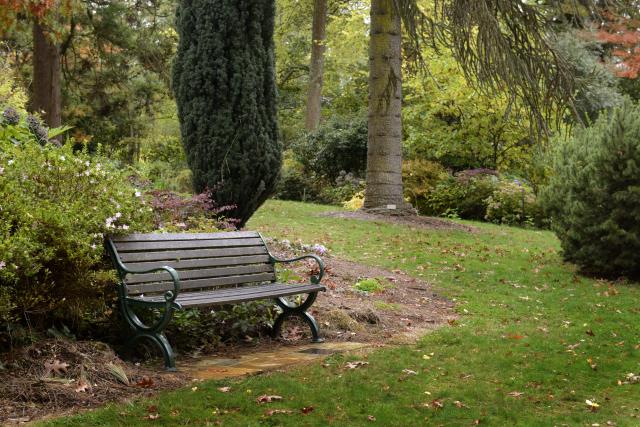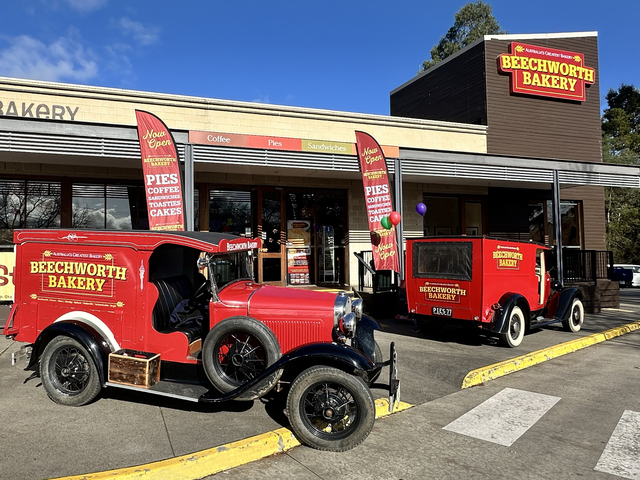SEVENTEEN children at Yarra Glen Primary School lost their homes on Black Saturday and staff lost a much-loved former colleague in Charmian Ahern. That was just the beginning.
Principal Joe Pacquola explains how the school has responded and of the challenges which are far from over.
EVERYBODY in this school was fire affected in some way or another.
It wasn’t just a black Saturday; we lived with that surreal environment for about six weeks.
In the first week I couldn’t track all of my kids. I had to consider the possibility that we might have lost some of them to the fires. Thankfully we did not.
But we did lose Charmi at Steels Creek, two staff saved their homes but lost everything else around them, and three others had their homes under siege in Healesville.
In all of that we were trying to keep a sense of normality at a time when you have all that energy and enthusiasm around starting a new school year.
The worst thing of all in my memory at that time was the wind storms which blew ash from all around us through the school.
Everything was covered in it and we were then made aware that some of that dust could have been potentially human remains, so wherever you looked there was that sort of reminder; it really was unrelenting pressure. We traded every day, except when we were forced to close, and provided that security and predictability for the kids… a place where they could, either through their art work or other forms of expression, try to make sense of what was going on.
Twice daily we do what we call Sharing Cares, Concerns and Celebrations, where the children sit in a circle and express something. It’s a way we get to communicate with every child every day.
Stories started to emerge, and not just with the kids, about relatives and others they knew who had lost everything, and of something which is still not really spoken much about, those who survived the fire but were burnt.
We had a parent whose hands were burnt and in protective mitts, another had one side of her face all blistered. Those were the physical signs, without any of the emotional ones.
There was plenty to deal with. We had a heap of informal processes in place that were fantastic for kids, as well as formal ones – psychologists, early school professionals and further down the track we invited in a kinesiologist, the sleep-talk people, relaxation practitioners… so not only did we have the clinical level support but we had that mid-range of support on top of the teachers’ professional handling of it all.
Rob Gordon, the Yarra Glen and government bushfire response psychologist, has been terrific, as has been the grief and trauma material from the education department, stuff I have found, particularly in the wake of the Canberra fires, support from other schools and a real earnest and open approach to dealing with the kids and their parents and how they are reacting, are all part of it.
If you get critical incident in school, I have found as principal, that with people, big and small, it triggers unresolved stuff and you just think ‘where has that come from?’
But when you drill down it’s often about stuff that has not been resolved.
You might have been told to harden up; or ‘we’re not dealing with that any more’ and that sort of approach just buries it, it doesn’t resolve it.
The mention of Black Saturday will stir up emotions of grief and anxiety and other things.
It will lessen in time but it will not go away and that’s where I and my staff have to drill down into every child’s psyche and get those emotions brought to the fore so when this happens they manage to deal with it in an appropriate way.
I feel we have made lots of headway through the art work, the plant regeneration and renewal day and a lot of informal activities which have made it OK for not only kids but also for staff to talk about feelings, family and fears so, when this stuff is dredged up, they are able to articulate it. When you ask are kids resilient enough today compared to 1939, I think we’re talking about quite different measures.
Did the ’39 victims get on with life and hardship and carry that burden? I believe they did.
But was anybody as interested in them as human beings with all the emotions and all of that soul stuff that we now want to nurture in our kids? I don’t think that was there.
I think in some senses kids these days are substantially more resilient than they were then because they can articulate their feelings, they can work with their emotions and they can share and lessen the burden.
If I am true to my charge, it’s not just about academic success, it’s about preparing kids for life.
Grief and loss are part of everybody’s life but having mechanisms to deal with that, I believe, gets you a better outcome.
You know the quality of your people and their dedication to the key priorities when the chips are down.
We have had our share of critical incidents but this really has tested the core purpose of this school and as a principal that’s when you sit back and you are really proud of your organisation.






